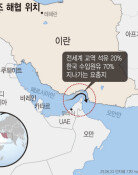Individual Workouts Opened for Potential Credit Defaulters
Individual Workouts Opened for Potential Credit Defaulters
Posted March. 01, 2004 22:54,
Starting in the second half of 2004, not only existing credit defaulters but also potential defaulters will be expected to pay back their loans on a long term basis by an individual workout system.
Furthermore, existing credit defaulters will be likely to make financial transaction such as using bank loans, according to their status of income and property.
The state-run Korea Institute of Finance (KIF) and Korea Development Institute (KDI) lately suggested alternative plans in their report titled, The prospective of credit defaulters and the aftermath, announced the Ministry of Finance and Economy (MOFE) and financial industries yesterday.
KIF and KDI have functioned as think-tanks to the governments economic policy, and their recent reports have been prepared in accordance with the MOFEs direction, whose major suggestions appear to be included in the governments general policy on credit defaulters scheduled to be announced within this month.
Requesting the governments prompt fundamental remedies, the KIF reported that the number of individual credit defaulters is expected to hit 4.6 million at maximum in the year-end, from 3.76 million as of January, under the assumption that the nations economic growth rate maintains a rate higher than five percent this year.
The KIF suggested that an additional body for credit recovery should be established, as a countermeasure to control the surging number of defaulters, in order to assist those who are potential defaulters with less than 3-month delinquencies on bank loans, or those who are not eligible for the Credit Counseling and Recovery Services support.
The agency also added that the function of the Korea Federation of Banks should be extended and the Credit Bureau (CB) be activated in place of abolishing the existing credit defaulter registration system in order to upgrade financial firms credit evaluation capability. If the credit defaulter registration system is abolished, any individual defaulter who has regular income and can afford to pay back will be able to receive bank loans.
Along with these plans, the KIF recommended that current credit delinquency information targeting those with more than three months of default records should be extensively covered from more than one month of default records. In addition, it suggested a detailed plan of collecting individual bank loan repayment histories and credit card payment records.
Meanwhile, the KDI report forecasted that the number of individual defaulters will exceed four million within the first-half of this year and insisted on establishing legal measures preventing the financial industry from turning down the Credit Counseling and Recovery Services debt revision plan.
The KIF and KDI also proposed an early enactment of individual debtor recovery law for the revival of credit defaulters, and financial firms active involvement in helping defaulters find jobs.
Chi-Young Shin higgledy@donga.com







